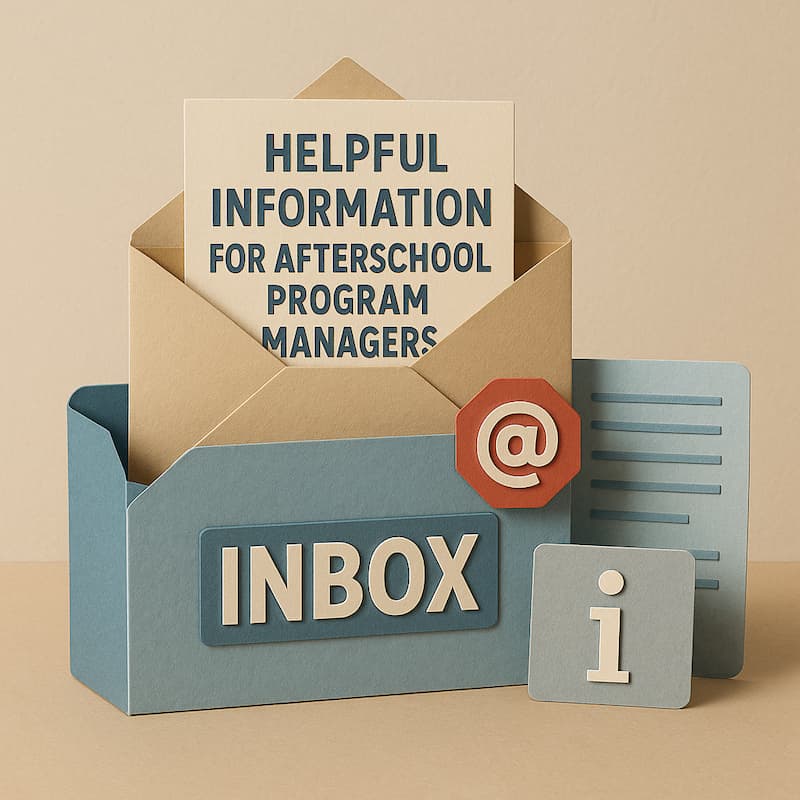School funding audits ensure compliance, accountability, and transparency in the use of public funds. For California schools participating in the Expanded Learning Opportunities Program (ELOP) and the After School Education and Safety (ASES) program, audits are a crucial part of maintaining program integrity and funding. However, the audit process can be time-consuming and complex, diverting valuable resources from your primary mission: educating students. This guide provides practical steps to efficiently prepare for ELOP and ASES funding audits, focusing on key recommendations, best practices, and readily available resources. By streamlining the audit process, you can minimize disruptions and continue to provide quality education and enrichment programs for your students.
Understand the ELOP and ASES Programs
Expanded Learning Opportunities Program (ELOP)
ELOP provides funding for after-school and summer enrichment programs for students in transitional kindergarten through sixth grade. The program aims to offer hands-on, engaging learning experiences that support academic skills, social-emotional development, and physical well-being. ELOP is aimed at students who qualify for free or reduced-price meals, are experiencing housing instability, are English Language Learners, or are foster youth.
After School Education and Safety (ASES) Program
ASES funds local after-school programs offering literacy support, academic enrichment, and safe alternatives for students in kindergarten through ninth grade. The program operates through partnerships between schools and community resources, emphasizing collaboration to improve student support within a safe environment.
Start Preparation Early
Proactive planning is key to a successful audit. Begin your preparation long before the audit is scheduled. For ELOP and ASES programs, this means:
- Developing a Comprehensive Program Plan : Ensure your program plan is approved by your Governing Board in a public meeting and posted on your school’s website, as required by the California Education Code.
- Maintaining Accurate Records : Keep meticulous records of student attendance, enrollment forms, staff qualifications, and financial transactions related to the programs.
- Regularly Reviews : Conduct periodic internal reviews to identify any areas for improvement and ensure compliance with program requirements.
Best Practices for Maintaining Records
Messy records can make an auditor’s job difficult and prolong the audit process. To avoid this, implement the following best practices:
- Standardize Your Record-Keeping : Use consistent formats for documents like attendance sheets, financial records, and staff qualification files.
- Utilize Specialized Software : Consider using management software designed for after-school programs, which can automate tasks like tracking attendance and generating reports.
- Train Your Staff : Ensure all staff members understand the importance of accurate record-keeping and are trained in compliance requirements.
Understand What Auditors Will Look For
As an administrator, it’s important to know what auditors will be examining:
For ELOP Audits :
- Compliance with Education Code Section 46120
- Approved and publicly posted program plan
- Documentation of student eligibility and attendance
- Staff qualifications and ratios
- Financial records showing appropriate use of funds
For ASES Audits :
- Evidence of local match contributions
- Compliance with the 85/15 rule for direct services
- Accurate attendance tracking
- Adherence to daily hours of operation
- Proper documentation of expenditures
Understanding the scope of the audit helps you prioritize your preparation efforts.
Key Steps in Preparing for an Audit
-
Gather Essential Documents : Collect all relevant financial documents, program plans, attendance records, staff qualifications, and any other required documentation.
-
Organize Your Records : Arrange documents in an easily navigable system, whether digital or physical. Clearly label files and ensure they are up-to-date.
-
Review Internal Processes : Assess your financial procedures, program implementation, and compliance with all requirements. Identify and address any weaknesses.
-
Stay Informed : Keep abreast of any changes in audit procedures or program requirements by regularly consulting resources provided by the California Department of Education (CDE).
-
Prepare Your Team : Conduct training sessions to familiarize your staff with audit expectations and procedures.
Common Audit Findings and How to Avoid Them
Being aware of common audit findings can help you proactively address potential issues:
-
Late Arrival and Early Release Policies : Ensure you have documented policies and that they are consistently applied.
-
Funding Direct Services (85/15 Rule for ASES) : Verify that at least 85% of funding is allocated to direct services for students.
-
Local Match Contributions (ASES) : Keep thorough records of your local match contributions, whether in cash or in-kind services.
-
Staff-to-Student Ratios : Maintain the required ratios and document staff schedules and assignments.
-
Proper Use of Funds : Use funding strictly for allowable expenses and maintain detailed financial records to support all expenditures.
By addressing these areas, you can reduce the likelihood of audit findings.
Use Available Resources
Don’t hesitate to utilize resources designed to assist you:
-
California Department of Education Expanded Learning Division: Offers guidance, FAQs, and audit procedures.
-
California AfterSchool Network: Provides support and best practices for expanded learning programs.
-
Afterschool Management Software: Tools like Attendly can streamline processes like attendance tracking, fee management, and report generation, making audit preparation more efficient.
-
Attendly and Audit Preparation
Attendly’s after-school management software can be a valuable asset in preparing for ELOP and ASES audits. Its features include:
-
Automated Attendance Tracking : Streamline the process of recording and reporting student attendance.
-
Financial Management : Simplify tracking of program fees, expenses, and generate financial reports.
-
Compliance Reporting : Easily generate data-rich reports required by auditors.
By simplifying these tasks, Attendly helps ensure your documentation is accurate, organized, and readily available.
Consequences of Non-Compliance
Understanding the repercussions of non-compliance underscores the importance of thorough preparation:
-
Financial Penalties : Schools may be required to return funds or face reductions in future funding.
-
Program Termination : Severe non-compliance can result in loss of eligibility for ELOP or ASES funding.
-
Legal Action : The CDE may take legal measures to enforce compliance.
-
Reputational Damage : Non-compliance can erode trust with stakeholders and the community.
Simplifying Auditing
Preparing for ELOP and ASES funding audits doesn’t have to be overwhelming. By starting early, maintaining meticulous records, and understanding what auditors are looking for, you can navigate the audit process smoothly. Implementing best practices not only simplifies audits but also enhances the overall effectiveness of your programs. Ultimately, this enables you to focus on what matters most: providing quality education and enriching experiences for your students.








